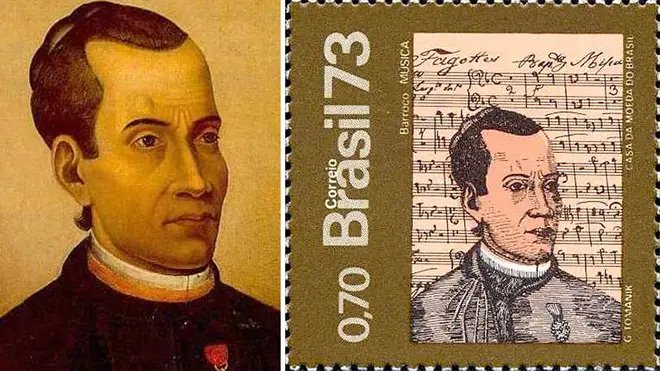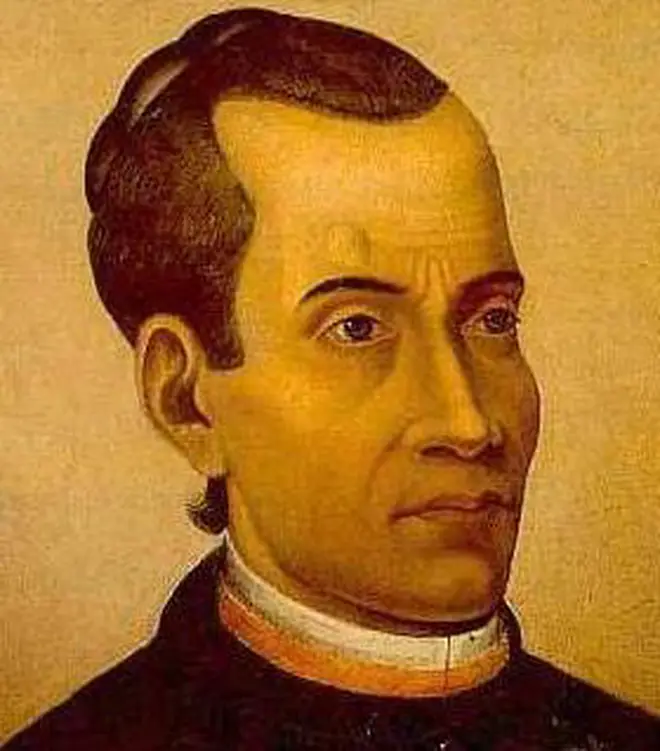On Air Now
Early Breakfast with Lucy Coward 4am - 6:30am
9 October 2020, 10:32 | Updated: 9 October 2020, 21:37

José Maurício Nunes Garcia wrote the first Brazilian opera and as powerful a Requiem Mass as Mozart or Verdi – here’s everything you need to know about the Afro-Brazilian classical composer.
You’re asked to name the biggest Requiem Mass in classical music: you might say Mozart, Fauré or Verdi – or perhaps Brahms springs to mind. Real choral aficionados among us may fondly recall Duruflé; perhaps enthuse about Dvořák and Bruckner’s contribution to the sacred choral setting.
But there’s another big Requiem Mass waiting for new ears – that of Brazilian composer José Maurício Nunes Garcia. “The Requiem that he wrote is just off the scale,” Chi-chi Nwanoku, presenter of Chi-chi’s Classical Champions, tells Classic FM.
“When I think that I spent over 35 years playing the same three requiems – Mozart, Fauré and Verdi [as a double-bassist]... they’re all fantastic pieces, but to discover that there’s another incredible Requiem Mass is mind-blowing.”
Read more: Chi-chi Nwanoku – ‘Classical music is suddenly going to become much more diverse’ >

José Maurício Nunes Garcia was a Brazilian composer, born in Rio de Janeiro in 1767. Known in his day as José Maurício, he was a contemporary of European masters Haydn, Beethoven and Mozart, and his music largely emulated their ‘Viennese School’ style of Classical composition.
José Maurício was the son of Afro-Brazilian parents – Apolinário Nunes Garcia, a tailor, and Vitória Maria da Cruz, who was the daughter of enslaved woman Joana Gonçalves. His father, also the child of a slave, died while José was still young, but his aunt lived with the family and encouraged him to pursue a musical education with a family acquaintance, Salvador José de Almeida Faria.
Maurício likely sang in the choir of Rio Janeiro cathedral, and biographer Manuel de Araújo Porto Alegre described him as having “a beautiful voice and a great musical memory” as well as “creating his own melodies” at the harpsichord and the guitar. The same biographer credits him with teaching music when he was as young as 12.
Catch up with Chi-chi’s Classical Champions on Global Player, the official Classic FM app >

José Maurício Nunes Garcia, REQUIEM 1816, PHOENIX, Myrna Herzog
Much of José Maurício’s musical development was against a sacred backdrop, and in 1792 he was ordained as a priest. He’d completed his first musical composition earlier than that – in around 1783, at the age of 16, when he wrote the sacred antiphon setting ‘Tota pulchra Es Maria’.
As well as his 1799 Requiem Mass, his large sacred works include a Magnificat, the Matins of Christmas – and his late lauded St. Cecilia Mass, scored for the inclusion of a big orchestra.
José Maurício is also credited with championing the Western Classical style in the Americas. Reviewing a recording of his works in Gramophone, harpsichordist and reviewer Lionel Salter described him as having a “Haydnesque style”.
Read more: Meet Fela Sowande, the Nigerian composer who married classical with West African music >

João Carlos Martins, 80, breaks down as he plays his piano with bionic gloves
He was the first Brazilian composer known to have written an opera – Le Due Gemelle, in 1817, which was influenced by the Italian operas of Cimarosa and Mozart – and he also wrote numerous large-scale orchestral works, including his ‘Tempest’ Symphony, ‘Funeral Symphony’ (for a Royal visit), and several secular harpsichord and instrumental works.
Teaching music was a big part of José Maurício Nunes Garcia’s contribution to Brazilian musical life. Francisco Manuel da Silva, who composed the music for the Brazilian National Anthem, is thought to have attended the public music classes Garcia conducted at Rio Cathedral, where he held the position of Mestre de Capela.
man of many firsts, José Maurício Nunes Garcia is also documented as being the conductor of the first Brazilian performance of Mozart’s Requiem.
José Maurício died in his home city of Rio de Janeiro in 1830. He was memorialised on a 1973 Brazilian stamp.
Hear the music of José Maurício Nunes Garcia, and other Black, Asian & ethnically diverse composers and performers, on Chi-chi’s Classical Champions at 9pm on Sundays on Classic FM. Listen on 100-102 FM, DAB digital radio and TV, online, and on Global Player, the official Classic FM app.